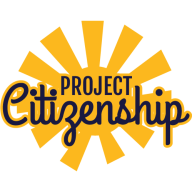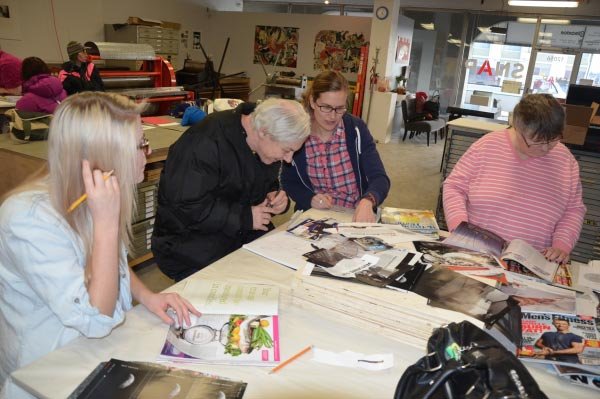Citizenship and Mental Health: Guest Article by Michael Rowe
We are very pleased and grateful that Dr. Michael Rowe of Yale University wrote this article for Project Citizenship to further our learning about supporting citizenship of marginalized populations.
Michael Rowe, PhD.
Citizenship is a word that my colleagues and I have been using for close to twenty years as a way of thinking about “a life in the community” for people with mental illnesses. 1 “A life in the community,” in fact, is a key part of what the community mental center movement in the U.S. was about, the other part being effective community mental health treatment. The two are not inherently separate, but in practice it has often seemed as though they were. Mental health treatment should support people’s lives overall, but too much treatment or other services can make people dependent on clinicians and other providers of services for a good part of their social lives.
Citizenship as we define it involves the person’s strong connection to the “5 Rs” of rights, responsibilities, roles, resources, and relationships that a democratic society offers to its members through public and social institutions and through “associational life,” meaning social networks and voluntary groups and activities.2 Going along with these 5 R’s is the need for a sense of belonging in one’s community and in society. For “belonging” to be real, people need the recognition of others,3 a message given in word, deeds, and attitudes that says “You do belong, you are a valuable member of this community [or society], and we need you.” Social inclusion is important, but you can be included without being granted full recognition by others. Community integration is important too. It shares common ground with civil rights movements to open up places of work, dining, residence, worship, and other gatherings. Still, you can be included without being equal. Citizenship learns and is consistent with social inclusion and community integration. It’s also consistent with the work of personal and social recovery. Citizenship, though, may come closest among these concepts to capturing the idea of “full membership in society.”
"Citizenship as we define it involves the person’s strong connection to the “5 Rs” of Rights, Responsibilities, Roles, Resources, and Relationships"
Citizenship is not only about membership, though. It’s also about the ability to grow, learn, and exercise one’s capacities and capabilities—to do the things you like to do, are good at, and value most4—without undue restraints or deprivations that keep people from acting on their aspirations, or defeat the effort to even bother thinking about them. This means that citizenship also involves social justice, reducing and eliminating gaping socioeconomic, health, and gender disparities, and eliminating racism, without which the 5 R’s are hollow. Gaining access to the 5 R’s requires individual effort, but it also requires advocacy and social struggle.3
But all of what I’ve written so far starts at the latter end of the twenty years of citizenship I mentioned above. Citizenship started in practice, with mental health outreach to people who were homeless in New Haven, Connecticut during the 1990s. Through doing this work, we learned that we could find, make contact, and build trust with people, give them or help them get mental health treatment, disability income or work, and housing. We also learned, though, that some of the people we helped move into their own apartments became isolated, felt out of place, and missed the sense of community they had when they had been homeless. Outreach work could do a great deal, then, but it could not help people become neighbors and community members, let alone full members of society. It could not grant them citizenship.
The next thing, after coming up with a definition to wrap our thinking around, was to do something about the non- or partial citizenship of the people we worked with. This challenge led to a number of projects from the late 1990s up to and including the present. Here are a few:
A community-wide intervention that brought together people who were homeless, providers of services, and other community members to educate the public about the needs and aspirations of people who are homeless.2
An individual and group citizenship-building program for people with mental illness and criminal charges, involving a practical citizenship course, community valued role projects, and wraparound peer mentor support.5
A community-based participatory study to develop an individual instrument/questionnaire that included peers as co-researchers and with individual measurement items that came directly from people with mental illnesses and others with serious life disruptions, who filled in the blanks in focus groups after hearing the statement, “To me being a citizen means . . .”6
A current citizenship community collaborative aimed at developing “citizenship-oriented care” on mental health treatment teams in outpatient clinics and in inpatient hospitals; integrating financial counseling and services into the citizenship framework; and developing community resources, opportunities, and networks to enhance people’s opportunities to achieve their citizenship goals.7
The notion of citizenship for people with mental illness has gained ground over the past two decades. The project of “real”-izing it, and not “reifying” it—turning it into a “thing” when it is a process, albeit one with individual marker points of success along the way—goes on. The foundation is sound. We need to keep putting it to the test in practice for and with people who have been deprived of their citizenship.
References
Davidson L, Mezzina R, Rowe M & Thompson K. “A life in the community”: Italian mental health reform and recovery. Journal of Mental Health, 2010, 19 (5) 436-443
Rowe M, Kloos B, Chinman M, Davidson L, Cross AB. Homelessness, mental illness and citizenship. Social Policy and Administration, 2001, 35, 14-31
Honneth A. The struggle for recognition: The moral grammar of social conflict. J Anderson, trans. Cambridge, MA: MIT Press, 1995
Hopper K. Rethinking social recovery in schizophrenia: What a capabilities approach might offer. Social Science & Medicine, 2007, 65, 868-879
Rowe M & M. Baranoski. Citizenship, mental illness, and the criminal justice system. International Journal of Law and Psychiatry, 2011, 34: 303-308
Rowe M, A Clayton, P Benedict, C Bellamy, K Antunes, R Miller, J-F. Pelletier, E Stern, M.J. O’Connell. Going to the source: Citizenship outcome measure development. Psychiatric Services 2012, 63: 45-50
Rowe M. Citizenship and mental health. NY: Oxford University Press, forthcoming January 2015



